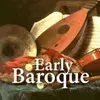Early classical Live Radio Stations
Radio Stations
Choose a Genre
Exploring the Foundations of Classical Music: The “Early Classical” Radio Genre
The "early classical" period, spanning roughly from 1730 to 1820, marks a pivotal chapter in the evolution of Western classical music. Emerging as a response to the complexity and ornamentation of the preceding Baroque era, early classical music introduced a fresh aesthetic characterized by clarity, balance, and elegance. This transformation laid the groundwork for what many consider the quintessential elements of classical music, making the early classical era an essential focus for enthusiasts and newcomers alike.
Radio stations dedicated to the "early classical" genre curate a rich playlist featuring the pioneering works of composers who shaped this transformative period. Among these luminaries are Wolfgang Amadeus Mozart, Franz Joseph Haydn, and Christoph Willibald Gluck—figures whose contributions helped define the style and structure of early classical music. Listeners might find themselves captivated by Mozart’s emotionally charged Symphony No. 40, Haydn’s cleverly structured and famously surprising “Surprise” Symphony, or the dramatic opera "Orfeo ed Euridice" by Gluck, which revolutionized operatic form.
Musically, the early classical style emphasizes clear, balanced melodies and straightforward harmonies that contrast with the often dense and intricate textures of Baroque music. Instrumental ensembles became more prominent, favoring smaller groups of musicians and fostering a more intimate, yet still sophisticated, sound. The music’s accessibility—its graceful phrasing and transparent structure—allowed audiences to more easily appreciate the emotional nuances and formal elegance inherent in the compositions.
Beyond the music itself, many early classical radio stations enhance the listening experience by providing valuable context about the composers and their works. Educational segments, interviews with musicologists, and recordings of live performances offer listeners insights into the historical and cultural backdrop of the era, enriching their understanding and enjoyment.
Ultimately, an "early classical" radio station serves as both a gateway and a tribute to a defining moment in musical history. By spotlighting the works of Mozart, Haydn, Gluck, and their contemporaries, these stations invite listeners to discover the elegance and innovation of early classical music—an era that continues to inspire and shape the broader classical tradition.
The "early classical" period, spanning roughly from 1730 to 1820, marks a pivotal chapter in the evolution of Western classical music. Emerging as a response to the complexity and ornamentation of the preceding Baroque era, early classical music introduced a fresh aesthetic characterized by clarity, balance, and elegance. This transformation laid the groundwork for what many consider the quintessential elements of classical music, making the early classical era an essential focus for enthusiasts and newcomers alike.
Radio stations dedicated to the "early classical" genre curate a rich playlist featuring the pioneering works of composers who shaped this transformative period. Among these luminaries are Wolfgang Amadeus Mozart, Franz Joseph Haydn, and Christoph Willibald Gluck—figures whose contributions helped define the style and structure of early classical music. Listeners might find themselves captivated by Mozart’s emotionally charged Symphony No. 40, Haydn’s cleverly structured and famously surprising “Surprise” Symphony, or the dramatic opera "Orfeo ed Euridice" by Gluck, which revolutionized operatic form.
Musically, the early classical style emphasizes clear, balanced melodies and straightforward harmonies that contrast with the often dense and intricate textures of Baroque music. Instrumental ensembles became more prominent, favoring smaller groups of musicians and fostering a more intimate, yet still sophisticated, sound. The music’s accessibility—its graceful phrasing and transparent structure—allowed audiences to more easily appreciate the emotional nuances and formal elegance inherent in the compositions.
Beyond the music itself, many early classical radio stations enhance the listening experience by providing valuable context about the composers and their works. Educational segments, interviews with musicologists, and recordings of live performances offer listeners insights into the historical and cultural backdrop of the era, enriching their understanding and enjoyment.
Ultimately, an "early classical" radio station serves as both a gateway and a tribute to a defining moment in musical history. By spotlighting the works of Mozart, Haydn, Gluck, and their contemporaries, these stations invite listeners to discover the elegance and innovation of early classical music—an era that continues to inspire and shape the broader classical tradition.
